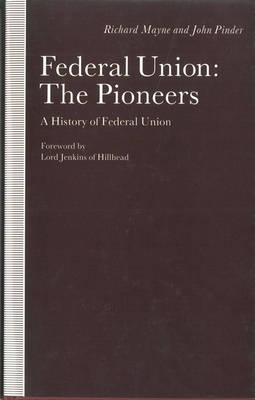Britain's relationship with its European Community partners has been bedevilled by divergent views about the aim of a political union with federal institutions. Federalism is often depicted in Britain as an alien concept with which the British cannot come to terms. This book shows this view to be false. Between 1938 and 1940, the British did the most to develop and promote the federal idea. Initiated by three young men, the organization known as Federal Union rapidly gained both elite and mass support and attracted some of the best brains in the country to develop thinking about political organization along federal lines. Following the rejection of Churchill's offer of Union to France, it was the course of the war that diverted the British from the idea of a federal Europe which was at the same time taking root in the resistance movements on the Continent.
This book shows how Federal Union achieved its originality and strength: how its literature inspired a small group in the Italian Resistance who became founders of the European federal movements: how this movement influenced the building of the present European Community; how a small group of British federalists carried the ideas of Federal Union's founders into their successful campaign for British membership of the Community -- while others worked to strengthen Atlantic and world institutions: how the British federalists contributed to thinking about the Community's further development: and how their work has continued in the 1980s, in the context of the Single European Act and the prospect that it will be followed by European Union in the 1990s.
- ISBN10 0333419952
- ISBN13 9780333419953
- Publish Date 14 June 1990 (first published 1 January 1990)
- Publish Status Out of Print
- Out of Print 14 June 2005
- Publish Country GB
- Imprint Palgrave Macmillan
- Format Hardcover
- Pages 288
- Language English
